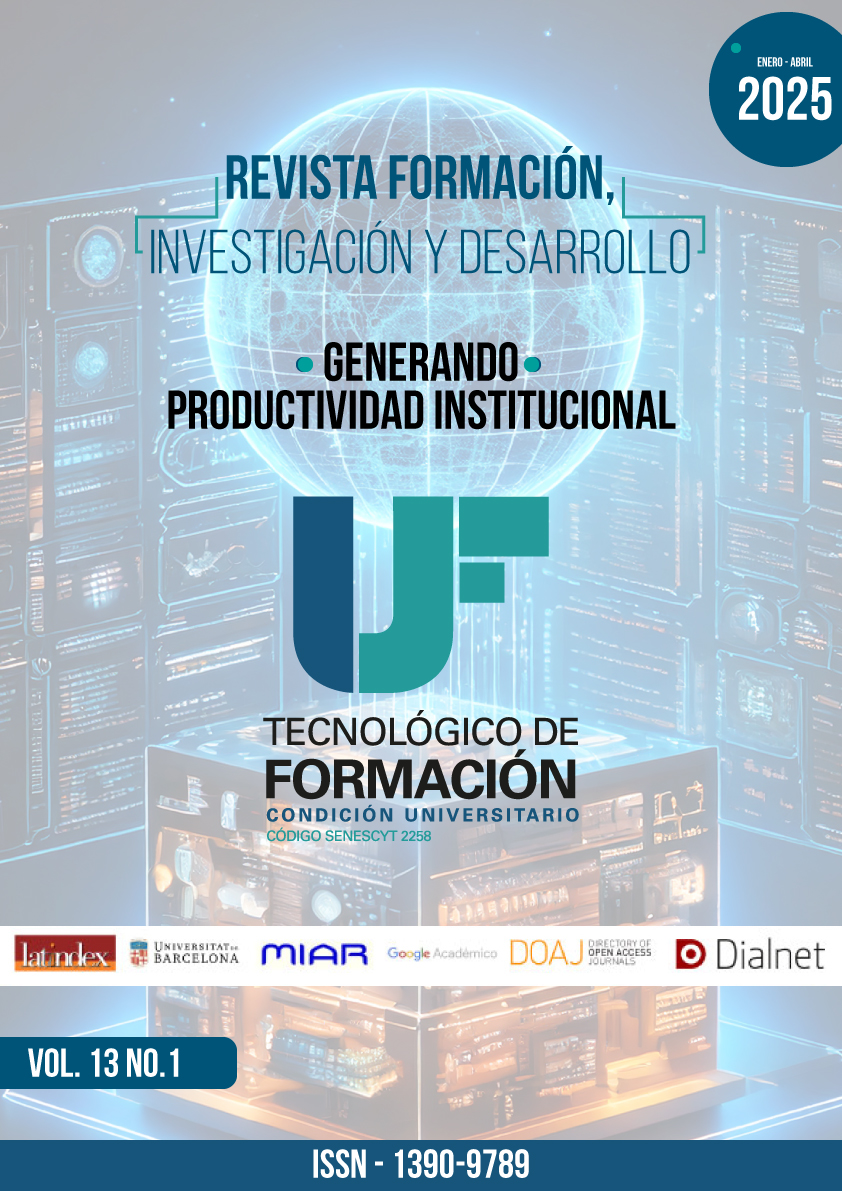Communication skills in the undergraduate training of early childhood educators.
Main Article Content
Abstract
The talkative abilities in the formation pregraduada of the educator of the first childhood have as fundamental objective to moderate to this professional future with the changes that are carried out in the country from the third improvement. They are necessities that emerge of the social development that imposes to assist the quality of the education considered as priority in the Calendar 2030. The present article has as purpose to develop the talkative abilities in the students of the first year of the career Education Preescolar in the University of East, in the same one they were elaborated a group of educational tasks so that from the contents of the subject Language and Communication they are guaranteed the development of the talkative abilities and with it to elevate the quality of the formation pegraduada in the Ability of Sciences of the Education. The following methods of the educational investigation were used: Analysis-synthesis, Analysis of documents, Observation, Interviews
Article Details
Section

This work is licensed under a Creative Commons Attribution-NonCommercial-ShareAlike 4.0 International License.
Todos los artículos publicados en la Revista de Investigación, Formación y Desarrollo: Generando Productividad Institucional (RIF) se distribuyen bajo la Licencia Creative Commons Atribución-NoComercial-CompartirIgual 4.0 Internacional (CC BY-NC-SA 4.0), que permite compartir y adaptar el contenido, siempre que se otorgue el debido reconocimiento a la autoría, no se utilice con fines comerciales y se mantenga la misma licencia.
Los autores conservan sus derechos de autor y otorgan a la revista el derecho de primera publicación. Esto permite a terceros compartir y adaptar el contenido con fines no comerciales, siempre que se atribuya correctamente la obra original y se mantenga la misma licencia.
Para más información sobre la licencia, consulte: https://creativecommons.org/licenses/by-nc-sa/4.0/
How to Cite
References
Arzuaga Díaz, Z. C., Sánchez Rodríguez, C. y Fumero Pérez, A. (2024). La superación ambiental del promotor del programa educa a tu hijo en el contexto rural. Maestro y Sociedad, 21(4), 1752-1759. https://maestroysociedad.uo.edu.cu
Arzuaga Díaz, Z. C., Fumero Pérez, A. y Sánchez Rodríguez, C. (2024) Análisis histórico de la superación del promotor del educa tu hijo para su gestión medioambiental. Varona no.80 21(4),1752-1759. https://maestroysociedad.uo.edu.cu/index
Báez García, Mireya (2006). Hacia una conversación más eficaz. Editorial Pueblo y Educación. La Habana.
FERRER M., M. T (2004) Las habilidades pedagógicas profesionales en el maestro primario. Modelo de evaluación. En Profesionalidad y Práctica Pedagógica. Horruitiner S, P. Revista
Fumero, A.; Escalona, I; Peña, A. (2021). La transición educativa y continuidad del desarrollo de los niños y niñas de preescolar a primer grado desde la formación permanente. Formación y Desarrollo: Generando Productividad Institucional, 9(3) (pp. 71-76). https://ojs.formacion.edu.ec/index.php/rif/article/view/300
Pedagogía Universitaria Vol. XII No. 4(2007).La universidad en la época actual. Capítulo I del libro La Universidad Cubana: Modelo de formación. Director de Formación de Profesionales del Ministerio Educación Superior.
Martínez Mendoza, Franklin, (2005). -- “El desarrollo psíquico y la construcción del Lenguaje. “CELEP. -- Cuba123 P.
MES. (2016). Modelo del profesional. Plan de estudio E. Carrera Licenciatura en Educación. Preescolar. Ciudad de La Habana.
MES. (2016). Programa de Disciplina Fundamentos Teóricos y Didácticos de la Educación Preescolar. Curso diurno Plan: E. Ciudad de La Habana
Moreno P. L. (2016) Programa de la asignatura Lenguaje y Comunicación.

